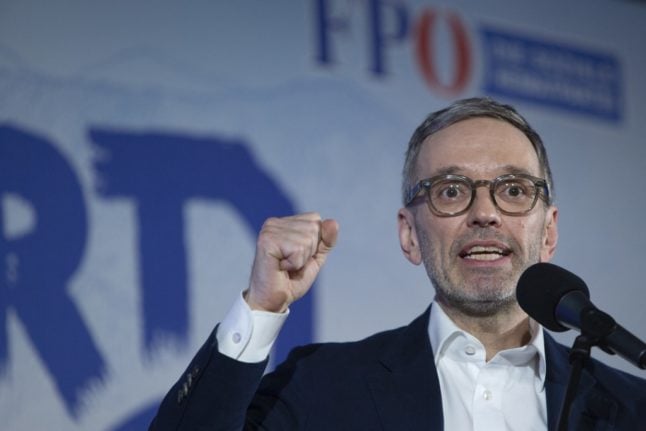Surprising Mayoral Election Result in Innsbruck
In a surprising turn of events, the mayoral election in Innsbruck will see Green incumbent Georg Willi facing off against former centre-right ÖVP candidate Johannes Anzengruber in the upcoming runoff election scheduled for April 28th.
On Sunday, Anzengruber ran with his list in the mayoral and municipal council elections.
Far-right FPÖ candidate Markus Lassenberger, who had polled strongly in some surveys, landed in third place, failing to advance to the runoff. Willi secured the top position with 22.9 percent of the vote, closely followed by Anzengruber with 19.4 percent. The Freedom Party’s Lassenberger trailed behind in third place with 15.9 percent, just ahead of the SPÖ candidate Elisabeth Mayr, who garnered 15.2 percent.
Meanwhile, the ÖVP candidate Florian Tursky faced a significant defeat, securing only 10.4 percent in the direct mayoral election. Tursky, the former State Secretary for Digitalisation, was nominated by the ÖVP as the lead candidate instead of Anzengruber.
READ ALSO: Austria’s ‘super-election year’: What will be decided and when?
Does Graz offer the best quality of life among Austria’s cities?
Austria’s Vienna and Salzburg usually get most of the attention of foreigners, but the country’s second-largest city, Graz, has a lot of charm and many fans. Are you one of them?
Number of Care Allowance Recipients in Austria Continues to Rise
The number of people receiving Austria’s care allowance benefit has continued to climb in 2024, the daily Der Standard reported.
Data from the Ministry of Social Affairs shows that as of February, there were 476,422 recipients, an increase of nearly 3 percent compared to the same period in 2023. This translates to over 13,000 more people relying on the benefit.
The distribution of care needs by level remained relatively stable. The majority of recipients (28.3 percent) require the lowest level of care (level one), while a smaller percentage (1.8 percent) fall under the highest level (level seven). Women comprise the larger share of recipients, accounting for over 61 percent of the total.
READ ALSO: Everything foreigners need to know about the Austrian healthcare system
Austrian Airlines Suspends Flights to Iran Due to Regional Tensions
Austrian Airlines, the final Western European carrier with a direct route to Iran, has suspended flights between Vienna and Tehran until April 18th. This decision comes amid rising tensions in the region.
Austria continued flights to Tehran after its parent company, Lufthansa, halted theirs. Vienna’s geographical advantage allowed for easier flight cancellations or overnight stays for staff, if necessary. However, following Germany’s lead, Austria’s foreign ministry advised its citizens to leave Iran.
Austrian Airlines stated, “To prioritise the safety of our passengers and crew, routes through Iranian airspace will also be adjusted.”
READ MORE: Germany’s Lufthansa and Austrian Airlines stop using Iran airspace
Austria Reforms Civilian Service Law
Austria’s civilian service program is being overhauled. A draft amendment proposes more flexible service options in hardship cases, including “divisibility” and a “papa month” for new fathers.
To address potential misuse, the plan allows mandatory specialist exams for those claiming mental health exemptions. Civilian service can also be “shared” under certain circumstances. Finally, the reform removes vocational training restrictions, benefiting organisations like rescue services.
This follows reports of around 220 individuals avoiding service with questionable medical certificates annually. The new law allows authorities to order specialist examinations in such cases.
READ ALSO: How does Austria’s mandatory military service work?
Styria Tightens Youth Protection Laws with Snus Ban
Styria is set to strengthen its youth protection measures with a new law, ORF has reported. The legislation, expected to pass in July, bans nicotine pouches (snus) for those under 18 and restricts sales of realistic imitation weapons.
“The top priority is the ban on snus for minors,” says State Councillor Simone Schmiedtbauer (ÖVP), responsible for youth and family affairs. The law also tackles “dangerous objects” like imitation weapons that could be mistaken for real ones.
Following a public consultation period, Schmiedtbauer reports receiving “very positive” feedback from child protection agencies, business associations, and addiction support groups. She expresses confidence in a smooth parliamentary passage with broad majority support.
The reforms come alongside increased youth development initiatives, preventative measures, and programs promoting digital literacy. Schmiedtbauer emphasises the aim is to raise awareness of juvenile delinquency and its potential impact on peers. “We see this as a comprehensive package,” she concludes, highlighting that existing youth curfew times will remain unchanged.
Wiener Neustadt Shaken by Moderate Earthquake
A 3.3 magnitude earthquake struck the Wiener Neustadt area late Sunday afternoon. The quake was felt most strongly at its epicentre, prompting hundreds of residents to contact Geosphere Austria, the Austrian earthquake service.
Residents reported feeling the tremor around 5:14 p.m., with some describing glasses clinking and a rumbling sound. While no significant damage was reported, Geosphere Austria advised that hairline cracks in plaster could potentially occur in vulnerable buildings.
Fortunately, as of Sunday evening, there were no reports of injuries or significant structural damage.
If you have any questions about life in Austria, ideas for articles, or news tips for The Local, you can contact us at [email protected] or leave a comment below.



 Please whitelist us to continue reading.
Please whitelist us to continue reading.
Member comments